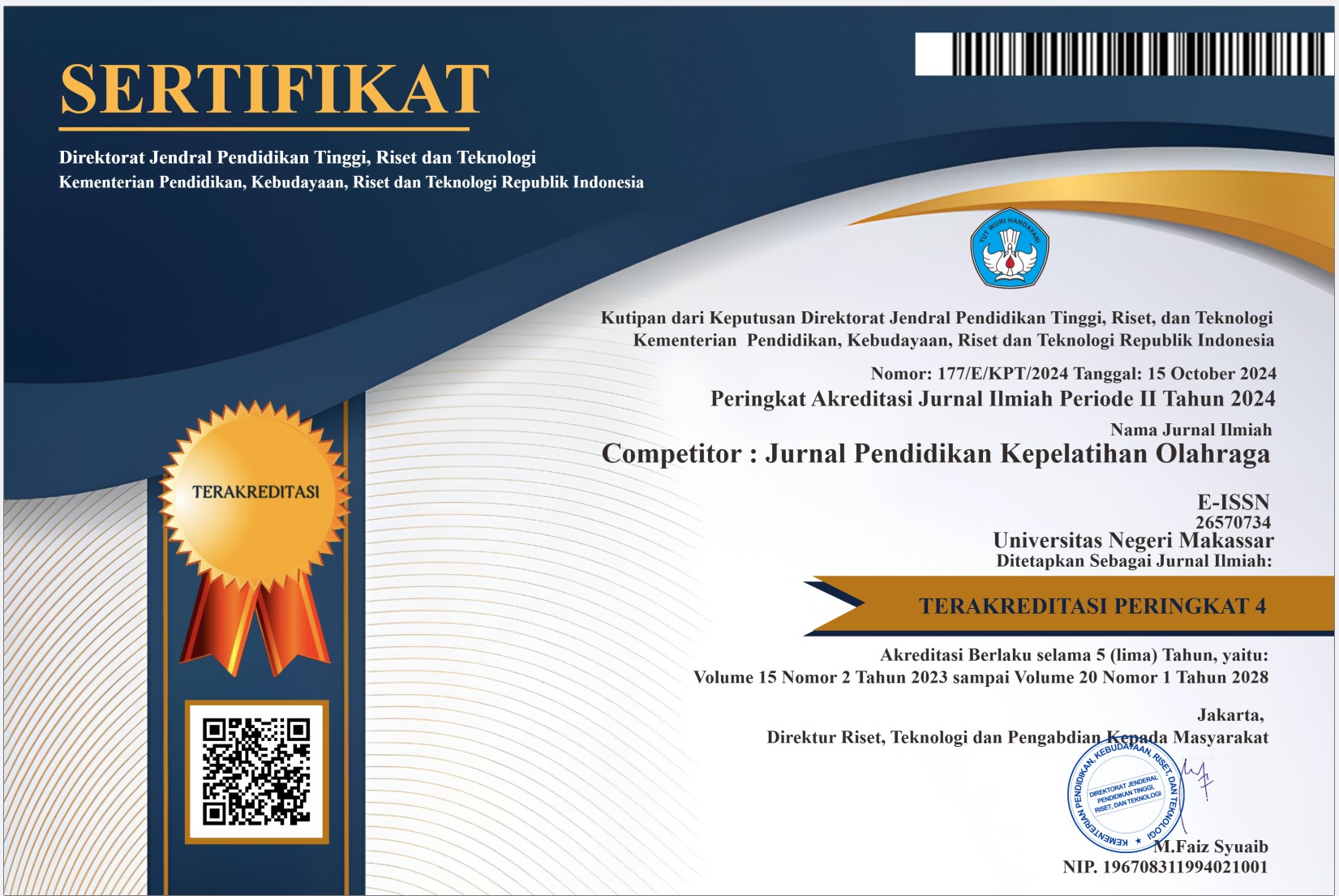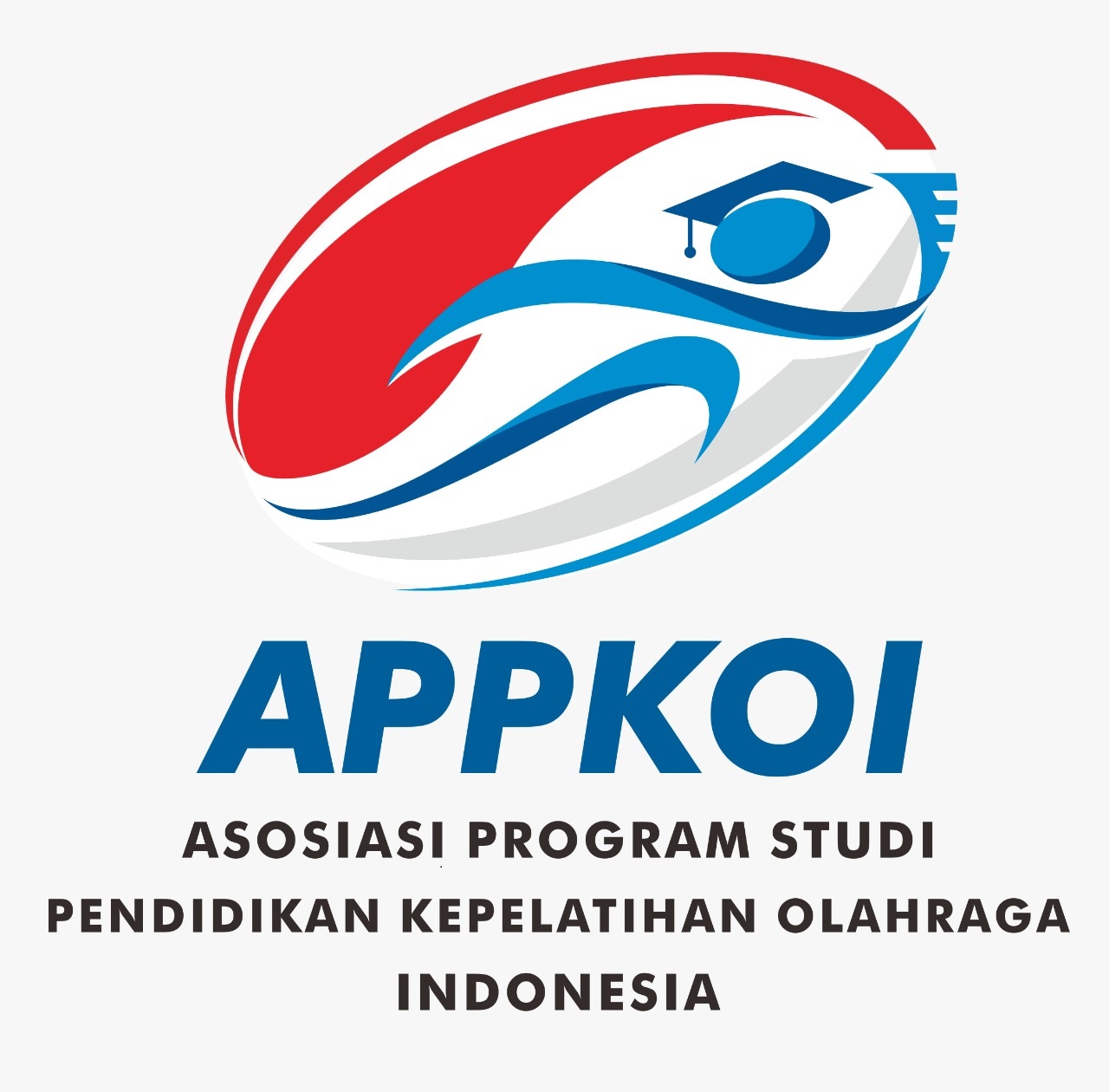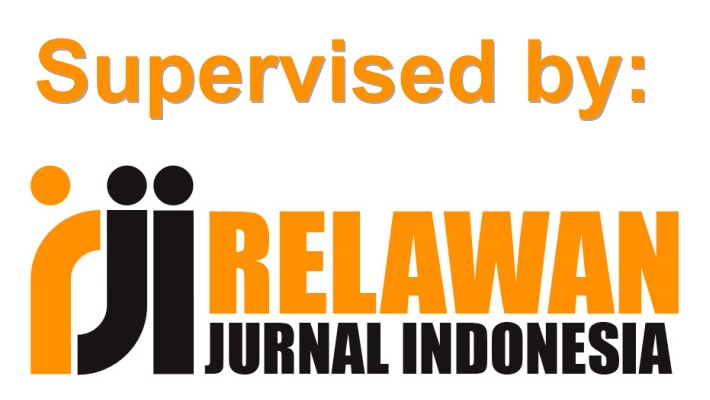The Relationship Between Aerobic Endurance and Haemoglobin of Junior High School Football Players 26 Makassar
DOI:
https://doi.org/10.26858/cjpko.v17i1.70721Keywords:
Aerobic, Endurance, Haemoglobin, Football.Abstract
This study aims to analyze the relationship between aerobic endurance and haemoglobin levels in soccer players at SMP Negeri 26 Makassar. This research uses quantitative methods with a correlational approach. The research sample consisted of 20 football players who were selected purposively. Aerobic endurance measurements are carried out using appropriate methods, while haemoglobin levels are measured using standard laboratory equipment. Data analysis was carried out using the Pearson correlation test. The results of the study showed that there was a significant relationship between aerobic endurance and haemoglobin levels in football players at SMP Negeri 26 Makassar with a correlation coefficient (R) of 0.308 and a significance value (p) of 0.000 (p < 0.05). There is a positive and significant relationship between aerobic endurance and haemoglobin levels. This shows that the better a player's aerobic endurance, the more optimal the haemoglobin levels in his body, which plays an important role in oxygen-carrying capacity and athletic performance.References
Barbosa, R. R., Melo, R. J. P., de Brito Gomes, J. L., Guimarães, F. J. de S. P., & da Cunha Costa, M. (2024). Effect of aerobic training volume on VO2max and time trial of runners: A systematic review. Journal of Human Sport and Exercise, 19(4), 1139–1150.
Bompa, T. O., & Buzzichelli, C. (2019). Periodization-: theory and methodology of training. Human kinetics.
Illahi, R., Juldinar, R., & Arti, E. S. (2024). Ketahanan Fisik Pemadam Kebakaran: Pengaruh Kombinasi Latihan Kardiovaskular Dan Manajemen Stres. Journal of Public Health Science, 1(2), 99–107.
Khadka, Y. R. (2021). Haemoglobin: A General Review. Cognition, 3(1), 111–118.
Mubarok, M. Z., & Kharisma, Y. (2021). Perbandingan Metode Latihan Interval Ekstensif dan Intensif Terhadap Peningkatan Daya Tahan Aerobik. Physical Activity Journal (PAJU), 3(1), 77–90.
Rosove, M. H. (2024). Haemoglobin and Red Cell Adaptation When Oxygen Is Lacking. In Life’s Blood: The Story of Haemoglobin (pp. 81–94). Springer.
Santisteban, K. J., Lovering, A. T., Halliwill, J. R., & Minson, C. T. (2022). Sex differences in VO2 max and the impact on endurance-exercise performance. International Journal of Environmental Research and Public Health, 19(9), 4946.
Tornero-Quiñones, I., Sáez-Padilla, J., Espina D’iaz, A., Abad Robles, M. T., & Sierra Robles, Á. (2020). Functional ability, frailty and risk of falls in the elderly: relations with autonomy in daily living. International Journal of Environmental Research and Public Health, 17(3), 1006.
Downloads
Published
Issue
Section
License
Copyright (c) 2025 M. Adam Mappompo, Poppy Elisano Arfanda, Ians Aprilo, Andi Atssam Mappanyukki, Iskandar Iskandar (Author)

This work is licensed under a Creative Commons Attribution 4.0 International License.



















